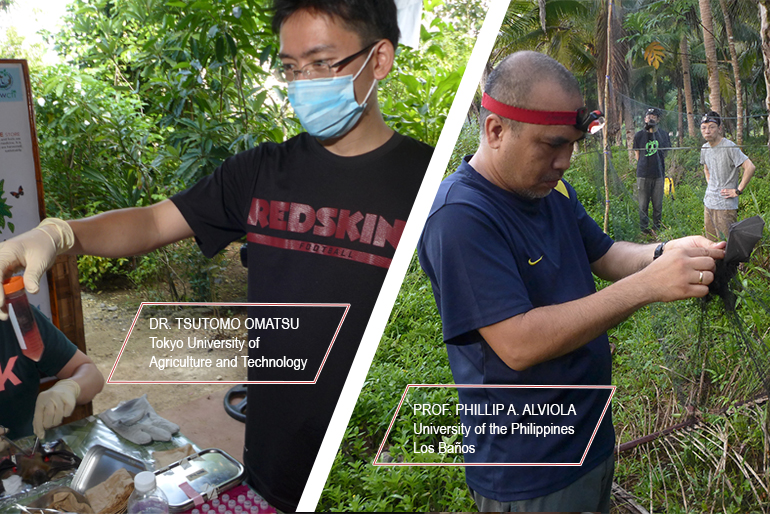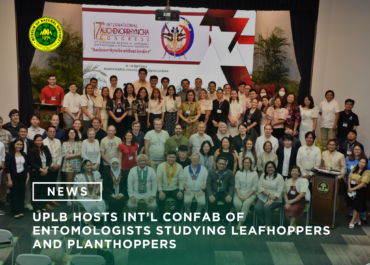
The UPLB Museum of Natural History is glad to announce that it will be participating in an upcoming research collaboration which will be conducted in Japan, Vietnam and the Philippines with funding from the Japan Science and Technology Agency (JST).
According to Prof. Phillip A. Alviola, curator for bats and other small mammals at the Museum, the JST has just approved the funding of five proposals submitted by scientists as a response to the call for non-medical research as countermeasures for COVID-19 under the e-ASIA Joint Research Program (e-ASIA JRP).
The e-ASIA JRP is a research exchange and collaboration program in the East Asian region which aims to strengthen research and development capabilities towards resolution of shared challenges across the region.
“Our proposal to develop a simulation model for prediction of the next outbreak of bat-derived coronavirus infection in humans was fortunate to be included in the roster of approved projects and we are very much excited to contribute to international efforts to combat the scourge of COVID-19,” Prof. Alviola said.
In a press release, the JSGT shared that the collaborative and complementary research among the three countries will contribute to predicting future outbreaks of bat-derived infectious diseases and introducing rapid countermeasures against them.
The lead project of the program will be based at Tokyo University of Agriculture and Technology under Dr. Tsutomo Omatsu. The Japanese research team will develop a viral dynamics model among selected bat populations, collect vegetation and meteorological data necessary for the development of the model, and conduct epidemiological surveys of bats as well. Dr. Ngan Pham of Vietnam National will lead University of Agriculture epidemiological surveys of bats in Vietnam. The Philippine research team will be composed of Prof. Alviola, Professor Emeritus and MNH curator Joseph S. Masangkay, and MNH staff Edison A. Cosico and Florante A. Cruz. They will provide bat ecological information and conduct epidemiological surveys of bats in the Philippines.
“We welcome this research opportunity, even if there will be predicted difficulty in conducting these surveys in light of numerous restrictions,” Prof. Masangkay” said during a short interview. Incidentally, although the Philippines is a party to the e-ASIA JRP, it was not able to allocate funds for the Philippine side.
“Our activities will have to rely on funding from Japan, but we are now currently working on another proposal so we can fully cover the expenses for our activities here in the Philippines,” Prof. Alviola said.
Search
Archives
Categories
- Announcement (21)
- Feature (21)
- News (141)
- Press Release (55)
- Research (4)
- Services (3)



